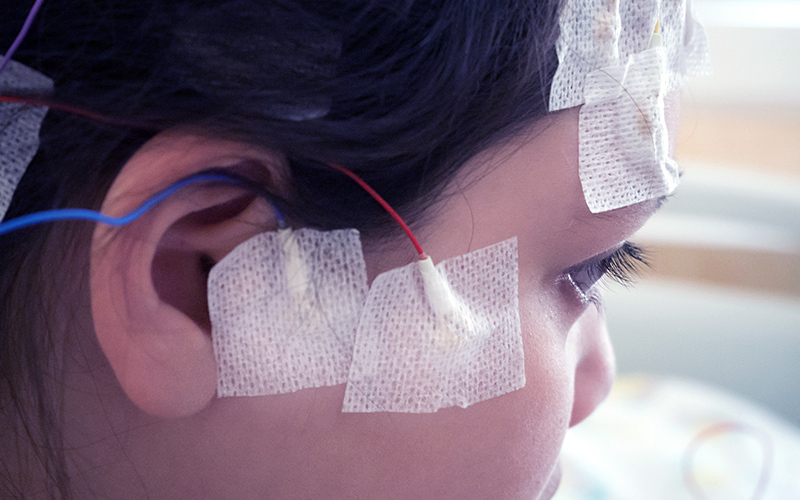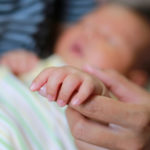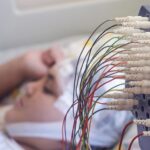A path forward for genetic testing in unexplained epilepsy

The number of genes implicated in epilepsy has grown rapidly in the past decade. This raises questions about what tests to offer to people with unexplained epilepsy and whether those tests would yield actionable information. Now, practice guidelines developed by genetic counselors at Boston Children’s Hospital offer a way forward.
In the first systematic evidence review of the literature on epilepsy genetic testing, Beth Sheidley, MS, CGC, co-director of the Epilepsy Genetics Program, and her colleagues examined the yield of commonly ordered, clinically available genetic tests.
“In a short time, we’ve gone from ‘zero to 60’ in terms of the kinds of tests available and the number of labs offering tests,” says Sheidley. “Much of the time it’s been hard even for genetics professionals to keep up with.”
Comparing test yields
In all, they reviewed 154 studies published through 2020 that met their inclusion criteria. As they report in the journal Epilepsia, genome sequencing had the highest yield, establishing a diagnosis 48 percent of the time. Next were exome sequencing (24 percent), multi-gene panels (19 percent), and chromosome microarray analysis, which identifies DNA deletions and duplications (9 percent). Patients with developmental and epileptic encephalopathy or neurodevelopmental comorbidities were more likely to receive a genetic diagnosis.
Forty-three studies reported outcomes of genetic testing beyond diagnostic yield. Sheidley recommends that future studies systematically assess these important outcomes, which included:
- a sense of closure for families
- guidance for family planning
- eligibility for clinical trials
- initiation of a precision treatment
- avoidance of a contraindicated treatment
- initiation of palliative care when prognosis was poor
- testing of other family members.
Guidance on genetic testing in epilepsy
Based on these data, genetic counseling program manager Lacey Smith, MS, CGC, led the development of a practice guideline. The guideline was endorsed by the American Epilepsy Society and published recently in the Journal of Genetic Counseling. It recommends the following approach to genetic testing for people with unexplained epilepsy:
- Exome or genome sequencing or a multi-gene panel should be offered as a first-tier test.
- Exome or genome sequencing are favored for most scenarios, as they are more likely to provide a diagnosis.
- In certain scenarios, a multi-gene panel (covering at least 25 genes) should be considered first. Examples include patients with defined epilepsy syndromes often associated with particular genes, and when a result is more urgently needed for treatment decisions.
- Genetic tests should be ordered by providers experienced in genetics. This will ensure that appropriate tests are selected and that results are interpreted in the right way and thoroughly communicated to patients and families.
- Genetic counselors should be involved in testing to provide counseling and to support families through their “diagnostic odyssey.”
“We hope that having a formal, evidence-based guideline will help make genetic testing a more routine part of epilepsy care, accessible to many more families,” says Smith.
Extending epilepsy genetic testing more widely
Sheidley, Smith, and coauthor Ann Poduri, MD, MPH, director of the Epilepsy Genetics Program, hope their work will help persuade insurance providers to cover testing.
“Our evidence review and guidelines drive home that genetics is an important part of the clinical evaluation of epilepsy, and shouldn’t be overlooked as something experimental or confined to the research arena,” Sheidley says.
“This work sets a new standard of care, allowing us to address the question of why each patient has epilepsy,” adds Poduri. “It will help us translate the science of epilepsy genetics to so many patients and their families, here at Boston Children’s and beyond.”
Refer a patient to the Epilepsy Genetics Program
Related Posts :
-

Diving deep on epilepsy genetics
When child neurologist Annapurna Poduri, MD, MPH finished her clinical epilepsy fellowship at Boston Children’s Hospital in 2004, she was ...
-

A promising new antiseizure drug tailored to newborns
Neonatal seizures can lead to serious consequences, including significant cognitive and motor disabilities, lifelong epilepsy, and death. They are ...
-

Chasing Rett syndrome biomarkers: Could overnight EEG studies improve care?
In Rett syndrome, a genetic condition affecting girls almost exclusively, mutations in the MECP2 gene cause a regression of language ...
-

New insight into dietary approaches for epilepsy
Fasting has been believed since ancient times to curb seizures in epilepsy, and small patient studies in the early 1900s ...





